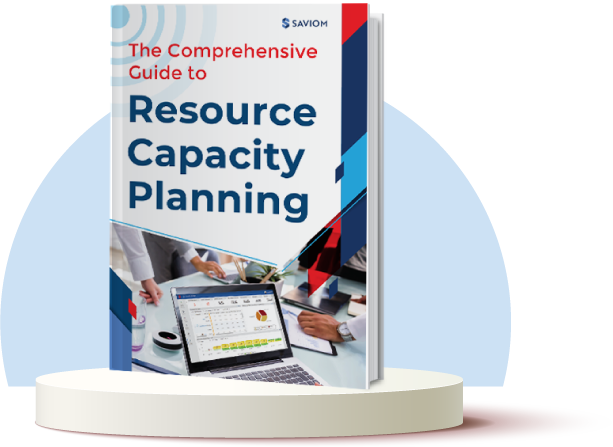In this hyper-competitive era, consistent improvement and innovation are paving the way to enhance profitability and sustainability. According to McKinsey,
“84% of executives say that constant innovation is important to their growth strategy.”
Moreover, in today’s world, where every company seeks perfection and regularly incorporates current trends, maintaining this consistency has become even more significant. Otherwise, it will be challenging for businesses to stay ahead of the competition.
To keep up with the novel market trends and maintain continuous innovation, businesses must have standardized processes devoid of defects or discrepancies. Moreover, these processes should be non-ambiguous and should be developed to deliver value to the customer. Only then can companies thrive and stay relevant in the long haul.
But, the question is, how can you achieve this?
The solution is- ”Operational Excellence.”
This blog will highlight every component needed for achieving operational excellence. Besides, it will also tell how you can upgrade your business processes and build a solidified presence in today’s competitive world.
But first, let’s begin with the definition.
What is Operational Excellence?
Operational excellence is the process of executing a business strategy consistently to lower operational risks, costs and increase revenue. The first step towards achieving organizational excellence is building a standardized and efficient process to ensure that the organization is running smoothly. The goal is to develop a culture of “operational discipline,” i.e., create an enterprise-wide management system with the ideal flow.
It is needed more than ever in today’s rapidly changing business models where organizations need to undergo end-to-end business transformation. Besides, it also helps meet customer expectations as it catalyzes improving the organization’s system and culture.
Now that we know what operational excellence is, let’s understand the difference between operational excellence and continuous improvement.
Read More: 7 Future Workplace Trends to Expect in the Post-Covid Era
Continuous Improvement vs. Operational Excellence
Continuous improvement is the ongoing effort made to enhance an organization’s processes, products, or services. Often, in this process, the senior management will set a goal, and the employees will make necessary changes in their areas to achieve it. Following this, the management will develop another new plan, and this cycle will continue year after year. Simply put, continuous improvement is a never-ending process of getting better, but it doesn’t have any specific end goal.
However, since market trends keep changing, organizations need to refine their processes, products, or services. This is where operational excellence comes in.
Operational excellence helps the enterprise embrace certain principles and tools that guarantee sustainable improvement in the processes. As a result, it assists the company in eliminating every defect and delivering excellent results to the client. Furthermore, with operational excellence, the company can create an innovative culture that will help achieve long-term growth. In a nutshell, operational excellence helps the business deliver the best results and maintain client satisfaction.
Significance of Operational Excellence
An operationally excellent process offers significant advantages to the business. As per the Harvard Business Review,
“Companies with peak operational excellence have 25% higher growth and 75% higher productivity than those who don’t.”
Here are some of the reasons why it is so important:
- Makes you agile and adaptable to change: A solid operational excellence framework makes you more adaptable to market changes. As customer demands change, economies are disrupted, and new technologies are introduced, and thus you’ll need a flexible and agile system to stay resilient. Operational excellence allows building strategies that enable you to combat any business upheaval.
- Ensures that the process, guidelines, tools are followed in every project: An operational excellence team ensures that the process is refined and every defect or bottleneck is eliminated. To do so, it formulates standard guidelines and protocols for process improvement. Moreover, it ascertains that the approved process is followed and implemented across every project within the organization.
- Helps create an efficient workforce: One of the primary objectives of the operational excellence team is to utilize the resources most efficiently to control resource costs. This has both large and small impacts on your business. Along with protecting the profit margin, it helps increase productivity, accountability, performance, etc., thereby creating an efficient workforce.
Principles of Operational Excellence
As discussed earlier, an operational excellence team is formed to look after the processes and ensure systemic perfection in every organization. To achieve this goal, the team has to follow certain principles and ensure every manager and employee is on board with the process.
Here is a list of the fundamental principles that every member of the operational excellence team has to abide by:
Respect every person
The road toward operational excellence begins with respecting every individual within the organization. This includes customers, employees, partners, vendors, etc. When people feel respected, they can emotionally invest in their role and give more than just labor. For example, the operational excellence team can exhibit respect by involving employees in the improvement process. Moreover, they may explain to every person how their contribution matters and take feedback for further enhancements.
Pursue perfection in the system
Attaining perfection may seem impossible. But, the pursuit of perfection is the surest way to obtain operational excellence. Otherwise, it may lead to imperfect processes and compromised outcomes. And to seek perfection in the process, creativity and effort from the members and the managers are necessary. Thus, it will help attain par excellence results and meet the required high standards.
Implement scientific thinking
The scientific method involves cycles of assessments and direct observation to form a better process. Embracing systematic thinking means being open to new ideas and applying methodologies to foster a good environment. Moreover, it helps create practical guidelines which are technically proven, thus eliminating the chances of ambiguity amongst members. Besides, it also forms a definite protocol and standardizes the process across the organization, ensuring everyone is on the same page.
Read More: Applications of AI in Project Management
Detail-oriented focus on process
Operational excellence is the result of finely tuned processes. However, no matter how smart or dedicated people are, they cannot consistently provide excellent results with inefficient processes. Thus, to solidify the process, the operational team must detect every defect at a granular level and identify ways to course-correct them. Then, they can create a detailed roadmap that will help take a step-by-step approach to improve the existing process and eliminate all the bottlenecks.
Create a consistency of purpose
Operational excellence teams must ensure that each person understands the organization’s mission, its long-term strategic objectives, and their roles in the process. Thus, clarity of purpose helps everyone make better decisions, innovate new ideas, and take calculated risks. It also helps keep employees aware of their roles and responsibilities and avoid unnecessary discrepancies, thus promoting cohesiveness.
Create value for the customer
For every excellence team, the end goal is to make the customers happy and satisfied with the results. It is the customer who decides what constitutes value and what they will pay for. Therefore, the team has to ensure that the established process delivers value and makes a difference. For that, they need to keep all the constraints such as cost, time, and scope in check and ascertain that the quality of the final deliverable is up to the mark.
Read More: Crucial Benefits of Earned Value Management
Methodologies for achieving Operational Excellence
In addition to the principles, the operational excellence team needs to have specific methods to eliminate defects and improve the process.
Here is a rundown of the methodologies that the team may follow:
Lean methodology
Lean methodology focuses on systematically eliminating “waste” in a process. As per this methodology, a business should focus on adding value and removing any bottlenecks in the process. It is the quickest path to success.
The fundamental principles of this methodology are- improving the quality of products, reducing anything that doesn’t add value, and cutting overall costs. It identifies five areas in a process that need to be eliminated while pursuing excellence, these are:
- Overproduction: It happens when resources produce something before it is needed or produce something more than what’s asked. It leads to excessive inventory.
- Waiting: When the process isn’t transparent and resources are left waiting for the next step in the system, it adds no value. Instead, it results in process delays and high costs.
- Transport: Transport is waste caused by the unnecessary movement of incomplete or unfinished products. It is usually caused by poor work standards and can lead to a loss in the product, such as product damages, thefts, etc.
- Over-processing: It happens when excess time is spent on the process than needed. It can result in customer dissatisfaction as the process will get time-consuming and result in delays in deliverables.
- Defects: Defects are mistakes that will need to be fixed, or else the process will have to start over entirely. These defects can be detrimental to the whole process as they can deteriorate the quality, and any defective product will result in client dissatisfaction.
Read More: What are the Different Project Management Methodologies?
Six Sigma methodology
Six Sigma is a set of tools and techniques designed to improve business processes that will result in a better product or service. This method aims to improve the customer experience by identifying and eliminating any “variation or defect.”
Operational excellence teams can apply the six sigma method and implement a process called DMAIC. It is an acronym that stands for define, measure, analysis, improvement, and control. It helps in reducing the variations and making the system better. Here is a closer look at DMAIC:
- Define: This is the first step. Here, the team will define the problem and begin creating a plan. Additionally, they will start evaluating your available resources through which they can mitigate the process issues.
- Measure: After understanding the problem, the team will measure all the available data and focus on the current process. That way, they can determine the areas of improvement.
- Analysis: After the data is measured and improvement areas are identified, the team will analyze the system’s shortcomings and causes. Following this, they will get to the root of the problem.
- Improvement: In this step, the team has to come up with possible solutions. Then, they can implement these solutions on a small scale to test the results and make any necessary changes.
- Control: This is the last step. Once the team has implemented the new process, they should find a way to maintain that process. To sustain the system, they must ensure that the process stays effective and followed everywhere.
Now that we know the principles and methodologies that the operational excellence team follows let’s understand how to implement operational excellence in your system.
Read More: Technology Trends that will Transform the Business Landscape
Steps to implement Operational Excellence
Here is a rundown of the steps you can follow to develop operational excellence in your company:
- First, you should create a solid operational excellence team with senior members who have significant years of experience and know the nitty-gritty of the process.
- In the next step, you have to determine the goals and objectives of the project in question. Moreover, you must ensure that every team member understands the expectations.
- Once you have conveyed the objectives and formed the team, you have to analyze the existing business processes and identify areas for improvement. Then, team members can document every significant part of the process and determine what needs to be done.
- After the areas of improvement are identified, the team can formulate strategies and methodologies to eliminate the discrepancies. For example, they can take methods such as the lean methodology or the Six Sigma method to eliminate the defects.
- Lastly, they can assess the tactics’ impact and ascertain the successful strategies to improve the whole process. Following this, they should keep track of the process from time to time and review the system for continuous improvement.
Read More: What is Innovation Management, and Why is it Important?
What are the critical success areas for an operational excellence team?
The success of an operational excellence team depends on the results obtained from the improved process. Here is a list of the critical success areas for an operational excellence team:
- Improved customer satisfaction from the end results.
- Reduced operational defects within the improved process.
- Enhanced engagement and productivity from the resources.
- More vital cash control and cash flow within the organization.
- Higher process accountability amongst the team members.
Conclusion
Operational excellence is more of a psychology than a methodology. It helps the team implement process improvement in areas that lack precision, efficiency, and innovation. Whether it’s a small business or a large enterprise, the operational excellence team can change processes and make them better, ultimately attaining the firm’s long-term objectives.
Any organization that achieves operational excellence will have lower costs, higher revenues, less risk, and more satisfied customers. This, in turn, will enable them to maintain the competitive edge.
So, are you convinced to build an operational excellence team yet?
Glossary
Read More: Glossary of Resource Workforce Planning, Scheduling and Management
SAVIOM Solution
SAVIOM has over 20 years of experience helping multinational clients manage their resources efficiently and effectively. With over 20 years of experience, this Australian-based MNC has a global presence across 50 countries and has helped 100+ clients meet their specific business goals. Saviom also provides tools for project portfolio management, professional service automation, and workforce planning software. So, SAVIOM can help your business to establish an efficient system geared towards your specific business challenges.












